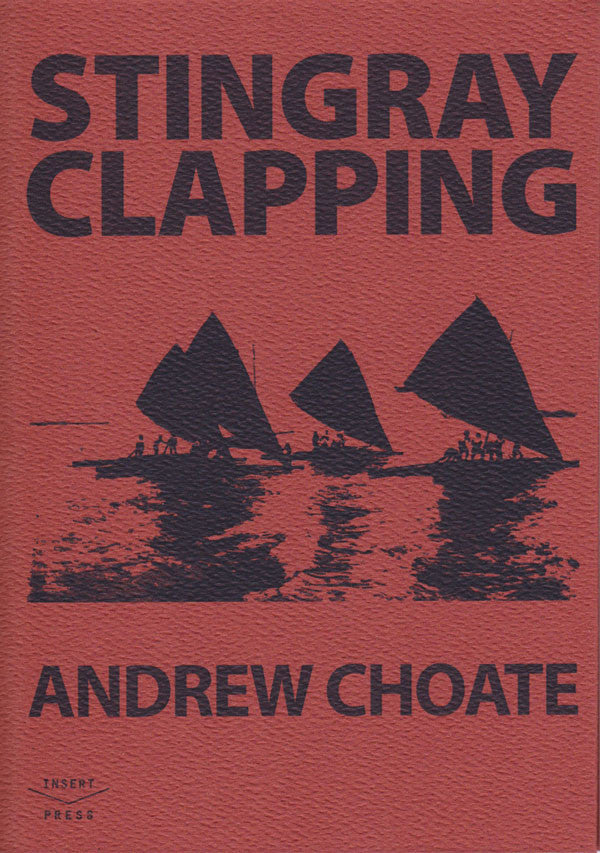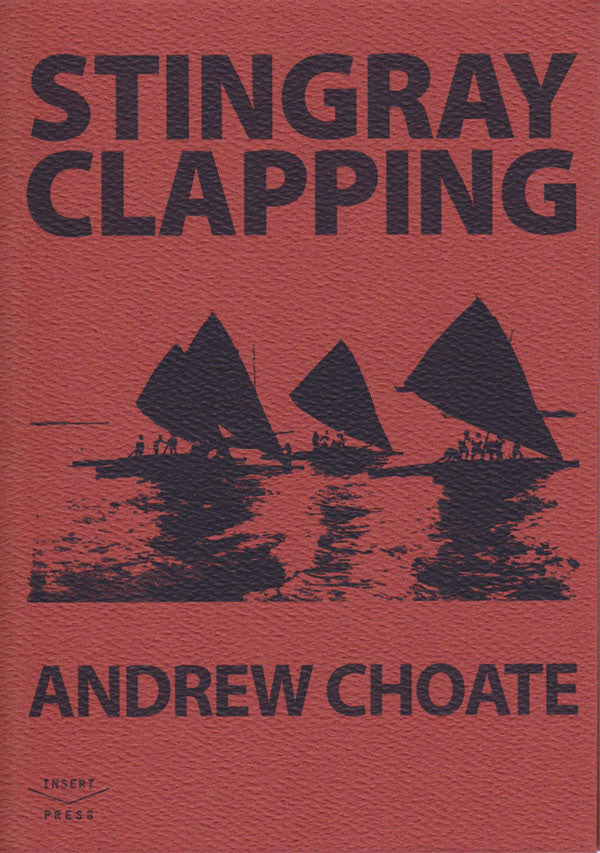Stingray Clapping AudioBook
Stingray Clapping AudioBook
Regular price
$0.99 USD
Regular price
Sale price
$0.99 USD
Unit price
per
Shipping calculated at checkout.
Couldn't load pickup availability
MP3, audiobook edition, approx 9 minutes
Cover price: $0.99
In 1999 I got a job working for Crain's Business Insurance magazine, proofreading entries in their Directory of Corporate Buyers of Insurance. I was primarily responsible for editing the half-sentence to one-sentence long descriptions of corporations. Never having been so intimately exposed to technical language before, I fell totally in love with the quality of the writing required to convey the much-vetted specificity of a corporate description. The fact that the words were crafted for the sake of clear legal and bureaucratic meanings, rather than for the sake of literature, encouraged me to read them as if they were both specific and evocative.
Considering the glut of language we're inundated with, it's difficult for a writer sensitive to that inundation to want to generate more text to send out into the world. My writings here attempt to do what those corporate descriptions do: be exact and polyvalent.
I like short texts that respect the reader's ability to read rather than pander to their manufactured desire to be overloaded. I like texts that avoid narrative, plot, concept, character and structure; texts that focus on these things feel like they are trying to dominate the reader. That's not what I am trying to do at all, I'm trying to give the reader an opportunity. Rather than explain every little thing, can't we consider words like colors to put on the page to savor. I mean actually generating (imagining/writing) phrases that can be read the way one listens to a favorite record: at different times of day and with different desires actively in play.
The words in Stingray Clapping are simply words without any kind of justification: not conceptual, narrative or otherwise. I imagined them and arranged them and was pleased and surprised by them.
I like short texts that respect the reader's ability to read rather than pander to their manufactured desire to be overloaded. I like texts that avoid narrative, plot, concept, character and structure; texts that focus on these things feel like they are trying to dominate the reader. That's not what I am trying to do at all, I'm trying to give the reader an opportunity. Rather than explain every little thing, can't we consider words like colors to put on the page to savor. I mean actually generating (imagining/writing) phrases that can be read the way one listens to a favorite record: at different times of day and with different desires actively in play.
The words in Stingray Clapping are simply words without any kind of justification: not conceptual, narrative or otherwise. I imagined them and arranged them and was pleased and surprised by them.
—Andrew Choate
Praise for Stingray Clapping AudioBook
Praise for Stingray Clapping AudioBook

Andrew Choate
Andrew Choate was born and raised in South Carolina and studied music and literature at Northwestern University and the California Institute of the Arts. His first book, Langquage Makes Plastic of the Body, was published by Palm Press in 2006. He has been publishing his writings on music and art since 1998 and his work has appeared in Urb, Coda, Wire, Signal to Noise, Art Ltd, d’Art International and Facsimile. His writing has been translated into Spanish, French, Hungarian and Czech. His radio plays and sound works have been broadcast on WDR in Germany, Radioarte Mobile in Italy, Hipersônica in Brazil, Resonance FM in England and various outlets in the US. His visual work has been exhibited at the Yerevan Center for Contemporary Art, the Torrance Art Museum, Barnsdall Art Park, High Energy Constructs and Overca$h. He has given lectures at the Museum of Contemporary Art in Los Angeles ("Picturing Language"), CalArts ("Writing for Video Performance") and Hofer's Studio Roof ("I'm Turning Sideways In This Crowded Train So You Can More Easily Pass Me By").

